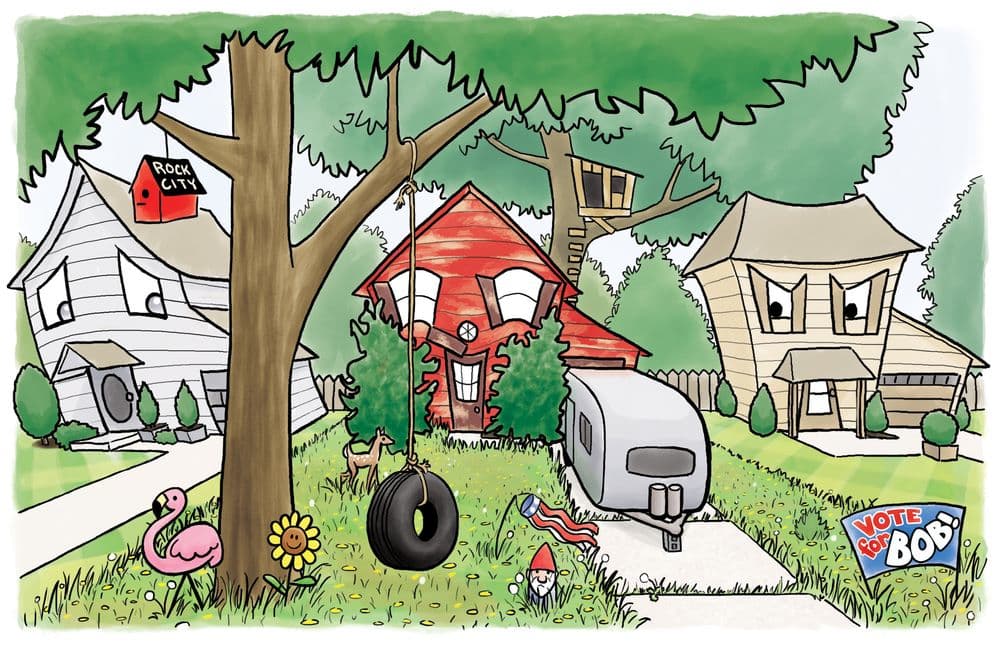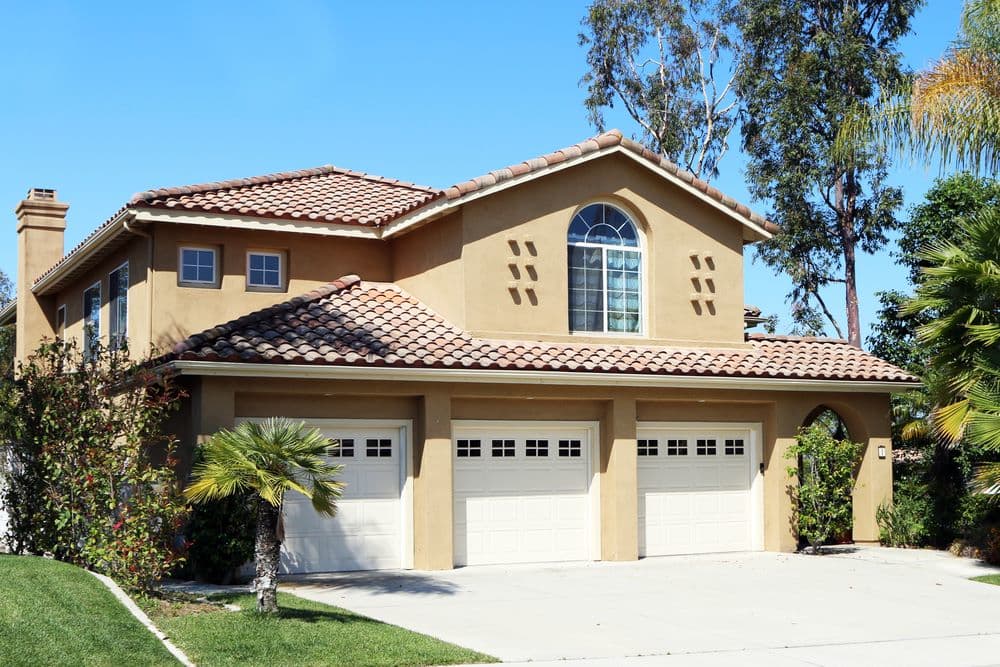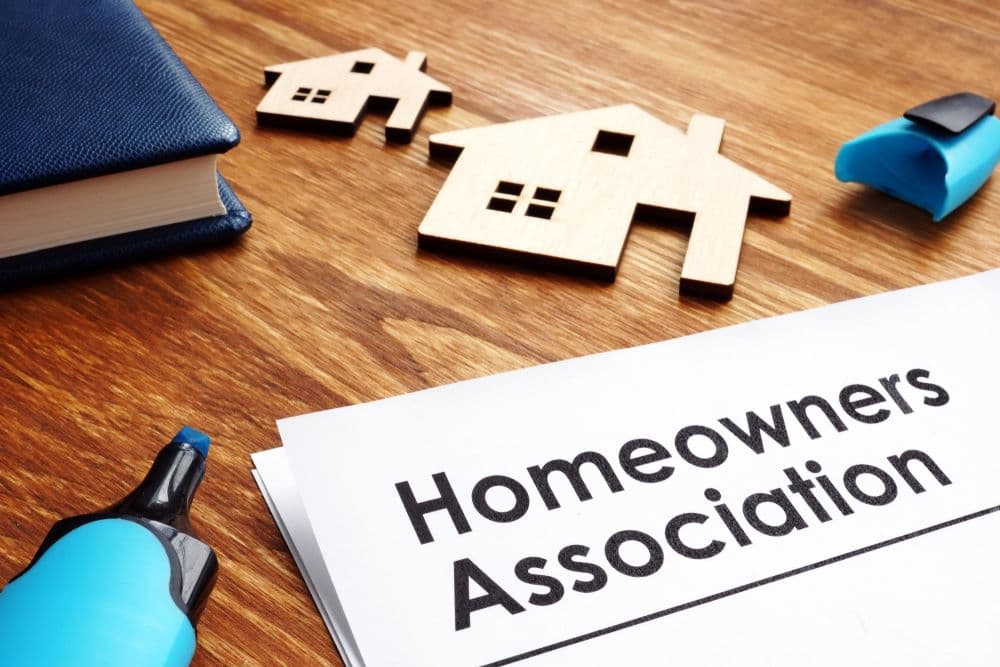What is an HOA Fee?
An HOA fee (Home Owners Association fee) is a fee that is paid monthly by homeowners within a particular neighborhood. HOA’s are part of the community design, initially planned during the development phase. The HOA fees are collected to cover maintenance costs associated with maintaining and improving community property, like pools, community centers parks, and other common areas. HOA fees are pretty much standard for all condominium owners but are also pretty common in neighborhoods of single-family homes in southern California. For condominiums, HOA’s are almost mandatory because of all the common areas.
The areas that are covered by these fees are walkways, lobbies, communal landscaping and lawns, elevators, parks, clubhouses, tennis courts, and parking areas. HOA fees will cover the costs of maintaining these common areas. The HOA may, at times, may levy special assessments if funds are needed to cover a larger project that the reserve fund is not available to cover the costs. These significant repairs could be a new elevator, roof, or pool remodel.
Most southern California communities built in the last 20 years will have an HOA. Because of the HOA’s, these communities can offer amenities that would be out of reach for a typical homeowner. These amenities make the neighborhood more desirable and increase the quality of life within the community.
According to the Community Association Institute, there are approximately 25% of Americans living in an HOA today, compared to 1% in 1970.
Essentially, the HOA is a group of homeowners that pool their money to share the costs of the areas shred and used by everyone within the community. The fees go towards:
- Paying for electricity to light common areas like walkways and community courtyards
- Maintenance and care for landscaping
- Parking lot maintenance
- Costs associated with running a community pool, fitness center or clubhouse
- Enforcement of HOA regulations (CC&R’s) that would restrict what can be done to property within the community
Homeowners could handle these responsibilities themselves, but most communities are too large for the homeowners to handle on their own. Typically, a management company is hired to manage the duties of the HOA.
Ways HOA Dues Affect Your Finances
HOA Fees Can Increase: Before purchasing a home in a planned community that has an HOA consider the affordability of the fees. Looking at the current costs are one thing, but you should also plan on future increases. If the fees were to make a significant increase, you might find yourself in a situation where you can no longer afford the home. HOA typically increase when large projects need funding, and because of inflation. You should ask about the HOA’s fee history, any upcoming projects an just the general condition of the current amenities. The shape and age of the amenities will give you some idea of what projects may be in the future.
You could be paying for amenities you will never use: HOA fees go to cover the expenses of all common areas. You may never have any intention of using the pool or tennis courts, but your payments will go towards their costs. But that is part of living in one of these planned communities. Your fees go in the general pool to pay for all the overhead for the community.
Not All Expenses Are Covered By The HOA: Your HOA fee will cover the expense of regular and planned costs. But occasionally major projects and emergency repairs will come up that need immediate funding. In those cases, there may be a special assessment that you may need to pay. The cost of these assessments can range from several hundred to several thousand dollars.
Note: HOAs have a reserve fund, which helps to absorb some significant and unforeseen expenses. You should get a copy of the current HOA statement to see what the current reserve funds before you buy a property. An HOA with an insufficient reserve fund may indicate an increase in fees soon. If there are no reserves, you can almost be sure of a future assessment if a significant repair is needed.
None payment can affect your credit: When you buy a property with an HOA, you agree to pay HOA dues and enter into a contract. Failure to pay your HOA dues could result in collections. Also, the HOA can place a lien on your property. Put of payment to the HOA long enough they can even foreclose on your home. The HOA collection will appear on your credit report and negatively affect your credit score.
Typically no tax benefit: If the home is your residence, HOA fees generally are not deductible. If the property is a rental income property, the HOA fee may be deductible. You will need to consult with a CPA to determine how HOA fees will affect your taxes.
There may be HOA fees at closing: When you buy a property that includes an HOA. Depending on the HOA rules, new owners may need to pay a prorated fee for the portion of the month you own the property.
You are still going to need insurance: While HOA dues pay for a master insurance policy, the insurance will probably not cover your property. The coverage provided by the HOA will most likely only cover the common areas of the community that the HOA maintains. The insurance coverage provided by the HOA will vary greatly from community to community. It is best to get a copy of the HOA policy and talk with an insurance agent that can best explain how coverage works.
What is an HOA assessment?
An HOA assessment is a one time charge to all the members of the HOA for a significant unforeseen expense that can not be covered by the reserve fund. Routine maintenance and even foreseeable high expenditures like a roof replacement can be planned for and the funds built up in the reserve fund over time. But say, for example, the elevator for a complex fails prematurely and requires $25,000 to replace. There may not be funds in reserve to cover the cost to replace it. In this case, the cost will become an assessment, and the cost will be divided equally among the HOA members.
Rules, Rules, Rules

In addition, maintaining common areas, HOAs set, and enforcing rules within your community. You will want to go over all the standards set by the HOA before you buy. You will want to obtain a copy of the HOA’s CC&Rs, make a request for recent meeting minutes, and take a look at properties in the community to determine the level of enforcement. Sometimes you can obtain a copy off the HOA’s website. But many HOA websites require a membership login to access anything. In these cases, you can go into the HOA or have your agent get the HOA’s CC&R’s.
You will want to review these rules in detail to decide if you can live with the rules.
While the rules are there to keep the community in a particular condition, some rules may be too burdensome. HOA’s can limit the colors you can paint your front door and exterior of the home. They can define the types of vehicles parked in front of the house, and on the street, bans on commercial vehicles and RV’s is relatively standard. Even the types of window coverings on windows that face the street are not out of the scope of some HOA’s.
Landscaping is another standard HOA ruling. The typical rules to landscaping are the height of the grass, watering, condition, size, and even the type of plants used. Fertilizers, pesticides, and irrigation can also be included in the HOA bylaws.
Limits on renting a home are becoming more common. If you think you may ever want to rent the house in the future, it could be restricted by the HOA. Many communities are tightening up on vacation rentals as well as long term rentals.
There could also rule regarding:
- Pet limitations and regulations
- Smoking
- Home maintenance requirements
- Parking regulations and restrictions
- Noise limit and curfews
- Ability to rent out part or all of the property
- Modifications and home appearance
- Home-based business restrictions
While some people appreciate the rules because they will help maintain the appearance of the community, for others, the rules could be a total deal-breaker. In the end, the choice of whether to buy or not will be up to you, so you will need to decide if the HOA rules will be good or bad for you and your family.
Things to consider when buying a home within an HOA
How HOA Violations Are Handled
When residents bend or break the rules, what kind of repercussions are there? You will want to explore how rules enforced before you purchase a new home in an HOA community.
Sanctions on violations can be strict. A lot of times it will result in fines. In some cases, the fines can be pretty severe. In some cases, the HOA can sue you to force compliance. Any unpaid fines can be charged against the property in the form of liens. In severe cases, these liens can result in foreclosure if they are not paid off. If you find yourself in this situation, it would be in your best interest to seek legal counsel.
You should obtain a list of past conflicts and rule violations and how the HOA resolved the violations. Keep an eye out for and violations that resulted in litigation. Also, check for any past and current lawsuits that involved the HOA along with their outcomes. Once you have all this information, it will give you some idea of how the HOA handles violations and the extent they are willing to take to force compliance
The HOA’s Reputation
The HOA will primarily serve as a local government for the community. It is a good idea to look into who the people are that run the organization and how well it functions.
It’s ubiquitous for HOAs to be controlled by community residents who volunteer for the positions or elected by association members. While some associations have a professional firm manage all responsibilities. If a private company manages the HOA, you should investigate its the company’s reputation. Most HOA’s will contract out repairs and maintenance by contract. You should see how these contracts are granted to make sure no corrupt practices are occurring.
It would be a good idea to talk with some current homeowners to see how they feel about the HOA. If there is some form of corruption, most people will gladly talk about it.
Is The New Home Compliant With Current HOA Rules?
While the seller needs to disclose any issues, you should make sure the home is compliant. If there is any issue with the HOA, you will likely inherit them upon purchasing. While you do have recourse, it is far easier to address them and have them resolved before you close on the property.
Some issues might be self-evident, like overgrown landscaping or peeling paint. But a thing like color changes or improvement without HOA approval may not be as easy to see without knowing the HOA rules in detail.
How HOA Fees Can Affect Your Mortgage Approval

The actual cost of HOA fees can range widely from community to community. These price of the fees are highly dependant on the number of amenities provided and the expected cost to maintain them. Properties providing luxury amenities will typically have the highest HOA fees. Many HOA fees run between $100 and $500 per month, with the average being roughly $300. Extremely high-end communities can run up to $1,000. Sometimes the fees may be increased because of improperly managed reserve funds, and in the if a need for additional funding should arise increases to HOA fees will occur. Every Perspective homebuyer should consider the cost of HOA fees into their proposed budget when determining home affordability.
When considering a property in a planned community, you’ll want to factor the impact of its HOA dues. So, too, will prospective lenders providing the financing.
Lenders will look at the cost of HOA fees like they do with property taxes. The cost of the HOA fees will be considered by the bank when deciding how large of a monthly payment you can afford. Properties with high HOA fees could reduce the amount of home you qualify to purchase.
It is best to talk with a qualified lender when you are considering a home with HOA fees. They can help you navigate any hurdles that may be presented by these fees. When you speak with the lender, you should have the HOA fees and property tax information in hand.
Oddly enough, the cost of the HOA fees does not always hurt home values. In most cases, they will have the opposite effect. Many home buyers are willing to pay the extra cost to live in a community that offers the amenities and benefits that HOA’s offer.
What Happens If HOA Fees Are Not Paid?
If an owner does not pay the required HOA fees, dependant on the HOA contract, there could be late fees or interest applied. The contract should spell out the exact details. But in California, an HOA can apply a lean on your home for unpaid HOA fees. The home can not be sold until the lien is settled. In extreme cases, the HOA has the option to foreclose on the house. A foreclosure only occurs in severe cases, but should you accumulate enough unpaid fees it could be an option the HOA may exercise.
Conclusion
With 61% of new homes are built in communities with an HOA you will likely look at homes with HOA’s during your search for a new home. The increase in HOA homes is primarily due to their popularity. The amenities offered are one of the most attractive features for many homebuyers. While many homebuyers see value in the strict rules that HOA’s provide. They feel that the strict regulations will keep the community in a condition that is consistent and will not change in time. As a result, providing some guarantee of maintained home value.
On the other hand, some homebuyers do not like the restriction placed on their life and would rather avoid the strict rules many HOA’s enforce. Additionally, the cost of HOA fees is often a deterrent to some home buyers because it will negatively impact their buying power.
In the end, it is all a tradeoff, and every homebuyer will need to gather all the facts and determine what will work for them in their situation. HOA’s are preferred by many and are becoming more popular and common. But no one should ever buy a home with an HOA without understanding how that particular HOA operates and governs. An excellent real estate agent is invaluable when it comes to obtaining and navigating the red tape of HOA regulations.


